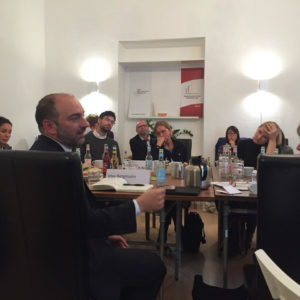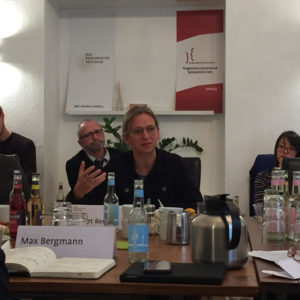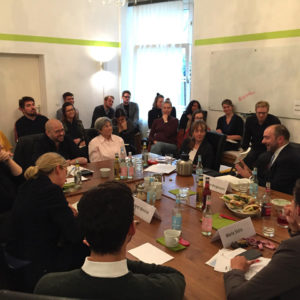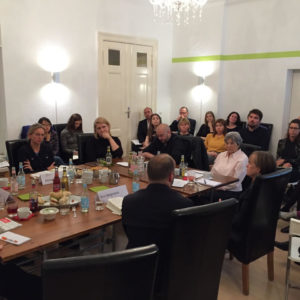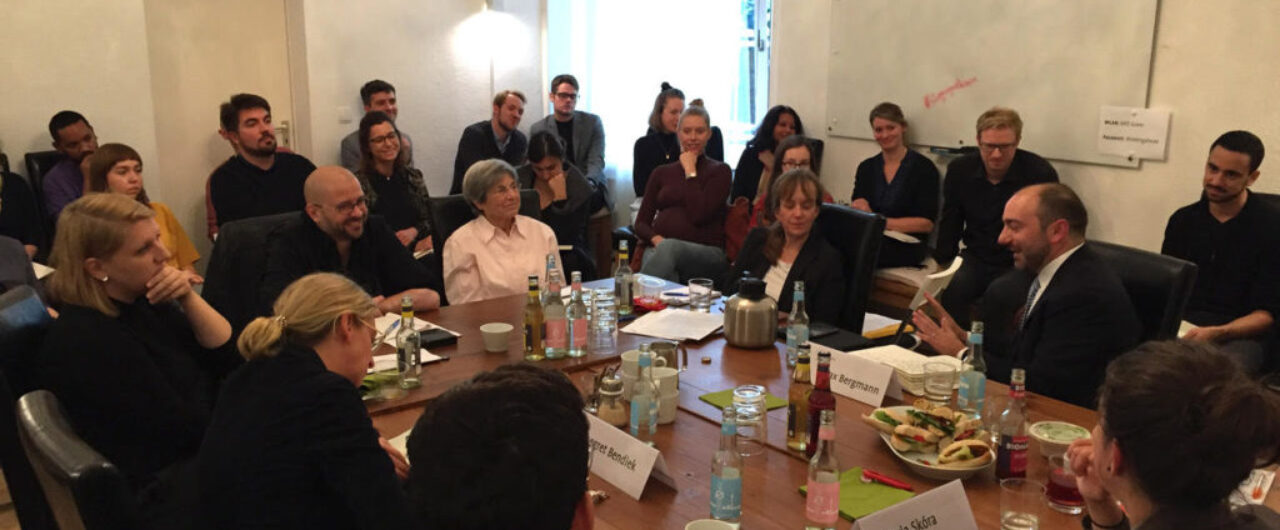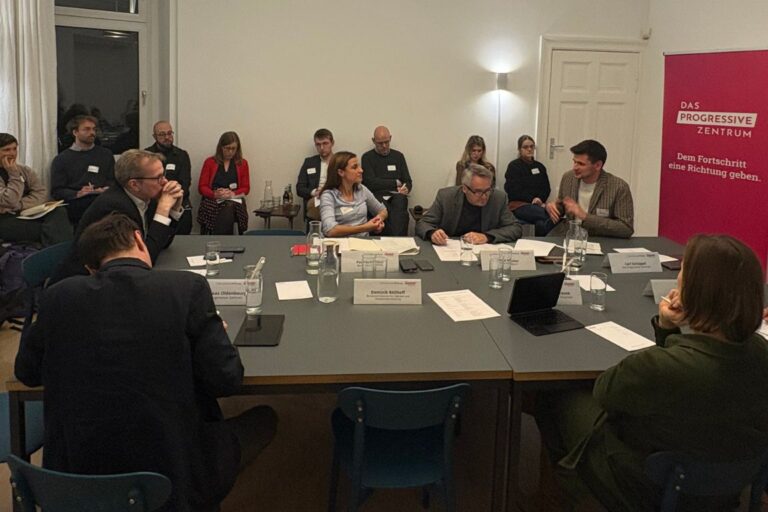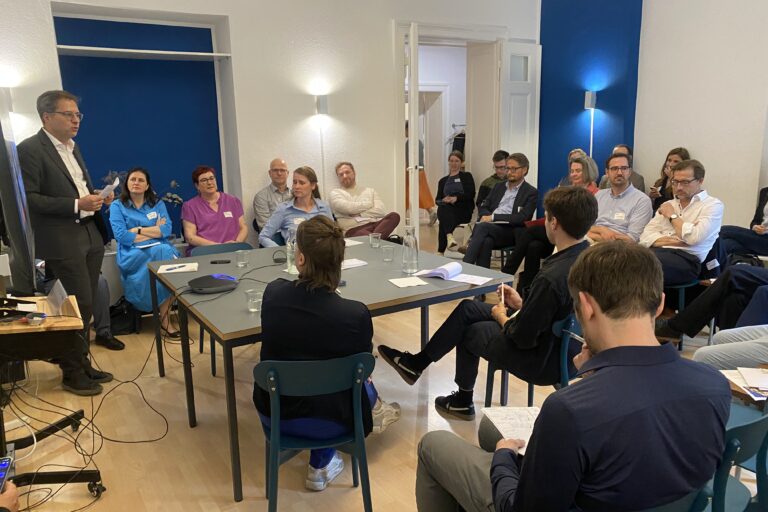Das Progressive Zentrum was delighted to host a Transatlantic Lunch with Max Bergmann from the Washington D.C. based Center for American Progress and Annegret Bendiek of the German Institute for International and Security Affairs (SWP). The participants discussed the current situation and the future of transatlantic relations in and after the Trump era.
Lunch debate about transatlantic relations
The lunch was attended by participants representing an array of organizations dealing with transatlantic relations as well as professionals and experts in this field. The event formally began with a brief welcome by Maria Skóra, Head of the International Programme at Das Progressive Zentrum, followed by a 20-minute contribution from both Max Bergmann and Annegret Bendiek. Following the two statements, there were several rounds of questions and comments from the audience.
How the 2020 elections could affect transatlantic relations
In our debate, we first covered the rise of Donald Trump, Russian interference in the 2016 election, Democratic Party 2020 election strategies, possible outcomes of the 2020 US general election for the executive and legislative branches, as well as several views on how the transatlantic partnership will develop in the coming years. The current and relevant topic of impeachment was also contextualized within several of the political analyses presented.
A loss of trust between Washington and Brussels
Taking a European perspective, the European Union was identified as the most appropriate actor to understand transatlantic relations. However, a deep loss of trust of Washington D.C. in the European Union was mentioned, which has been compounded through its lack of support for European integration and multilateral institutions, such as NATO and the WTO.
Speaking of the future EU-US relationship, we came to the conclusion that US Congress sympathetic to the European project and multilateralism would not be sufficient to boost it, given the precedence of the executive branch in the US political system. Also discussed were the differences between how the European Union and the United States view actors such as Russia and China.
